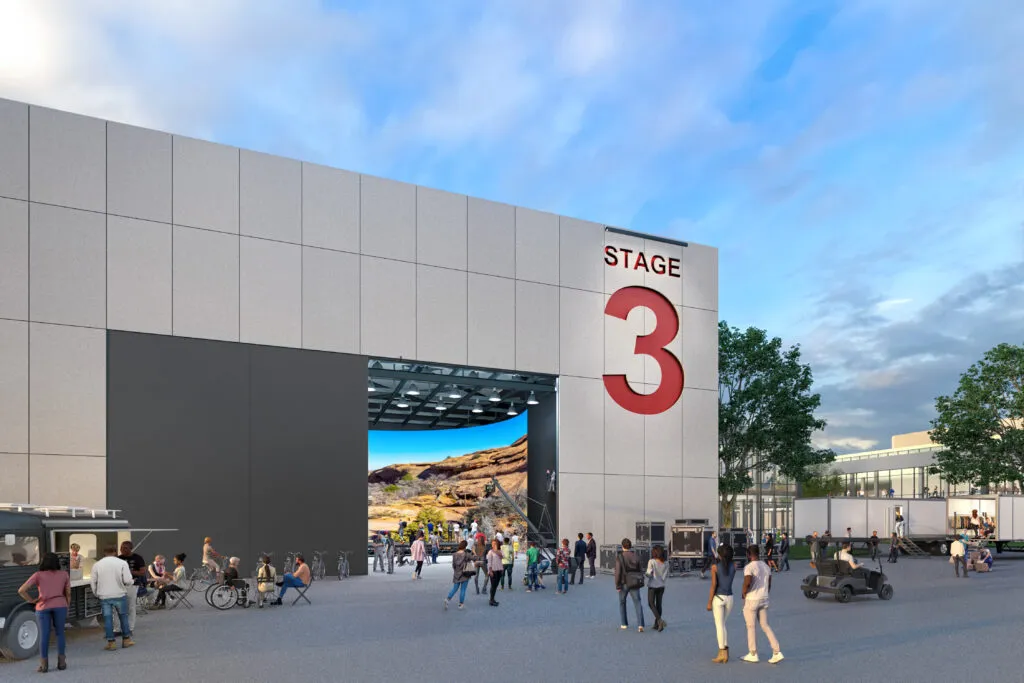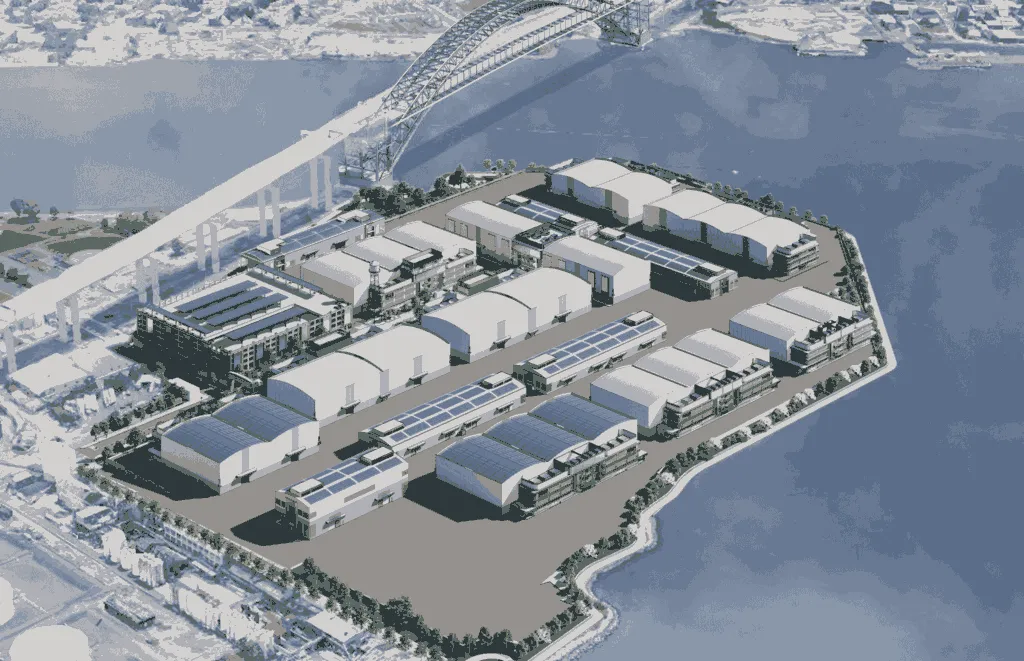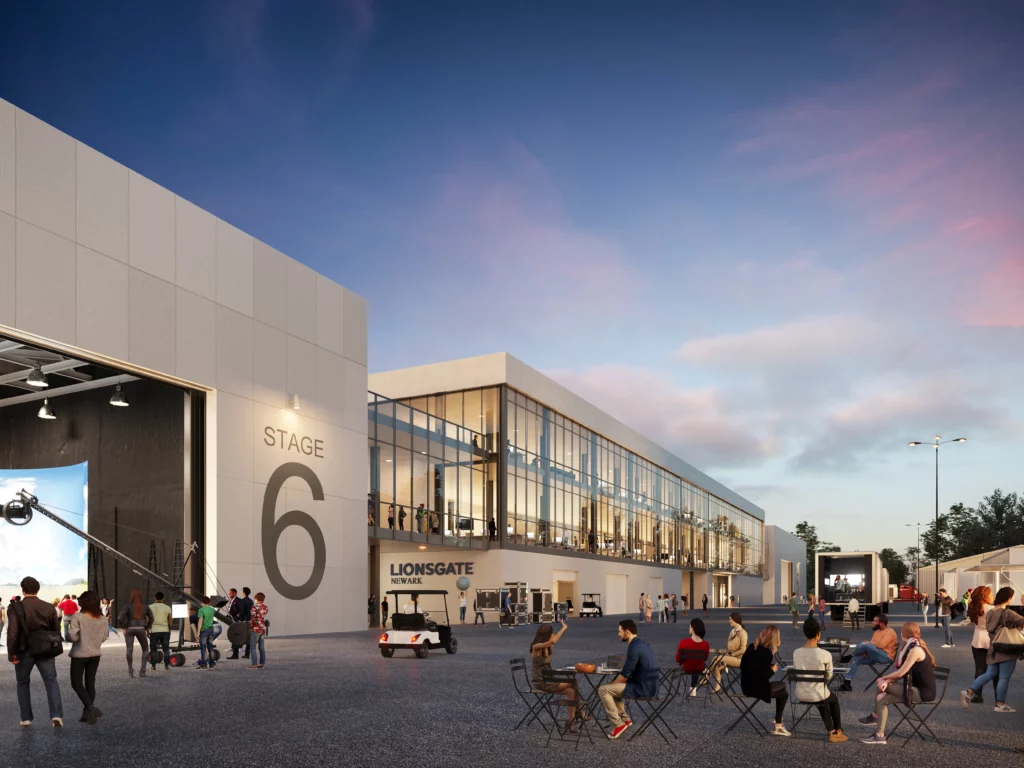President Donald J. Trump announced Saturday a sweeping proposal to impose a 100% tariff on all foreign-produced movies entering the United States, claiming that the American film industry is under “a very fast death” and labeling the situation a “National Security threat.”
This action could benefit New Jersey, which has made a hard play to draw filmmaking out of Hollywood and into the Garden State. It’s one of the few initiatives by Governor Phil Murphy that could have a long term positive effect on the Garden State.
Aside from the Netflix studios at Fort Monmouth, New Jersey has also built new studios in Bayonne and Newark.
In a statement posted to his Truth Social account at 4:18 p.m. on Saturday, Trump wrote that the U.S. movie industry is being “devastated” by international competition and foreign governments offering incentives to lure American studios overseas. “Hollywood, and many other areas within the U.S.A., are being devastated,” he stated. “This is a concerted effort by other Nations and, therefore, a National Security threat.”
Trump’s post asserted that the outsourcing of American film production amounts to foreign propaganda, and he called on the Department of Commerce and the United States Trade Representative to begin instituting tariffs “immediately.” No timeline or legal framework was included in the statement.
New Jersey has emerged as a burgeoning hub for film and television production, driven by aggressive state incentives, strategic redevelopment projects, and the involvement of major studios like Netflix and Lionsgate. Under Governor Phil Murphy’s administration, the state has prioritized revitalizing its entertainment industry, leveraging its proximity to New York City, diverse filming locations, and skilled workforce to compete with established production centers like Georgia.
State Incentives and Policy Initiatives Since 2018, Governor Murphy has championed the New Jersey Film and Digital Media Tax Credit Program, offering a 30-35% tax credit on qualified production expenses, with a 40% credit for studio developments. In 2020, the program was expanded, and in 2023, legislation increased digital media tax credits from $10 million to $30 million annually, with an additional $100 million for film-lease partners starting in 2025. These incentives have attracted significant investment, with the Motion Picture Association reporting $2.15 billion in wages and over 19,000 jobs created in the state’s film industry since 2020. In 2022 alone, in-state production spending exceeded $700 million, surpassing previous records.

Netflix’s Flagship Studio at Fort Monmouth Netflix is leading New Jersey’s production boom with a $903 million investment to develop Netflix Studios Fort Monmouth, a state-of-the-art East Coast production hub on a 289-acre former military base in Oceanport and Eatontown. Approved by the New Jersey Economic Development Authority (NJEDA) in December 2024, the project includes a $55 million land purchase and $848 million in construction costs. The campus will feature 12 soundstages, backlot areas, office spaces, a helipad, theater, hotel, and visitor attractions, preserving historic sites like the Fort Monmouth parade grounds. Netflix has committed to a 10-year presence, securing $387 million in tax credits under the Aspire Program. The project is expected to create 1,500 permanent jobs, 3,500 construction jobs, and generate $7.4-$8.9 billion in economic output over 20 years. The first phase, including four soundstages in the McAfee Zone, has received local approvals, with construction slated to begin by late 2025 and full completion projected between 2034 and 2037.
Other Studio Developments Beyond Netflix, other studios are investing heavily in New Jersey:
1888 Studios (Bayonne): A $1+ billion, 58-acre project, approved in 2024 as a Film-Lease Partner Facility, will be the largest ground-up studio complex in North America, featuring 23 soundstages. It received $400 million in tax credits and is expected to break ground in fall 2025, with completion in two years.

Lionsgate Newark Studios (Newark): A $125 million, 12-acre facility partnered with Great Point Studios and the New Jersey Performing Arts Center, set to open in 2024. Lionsgate was the first to receive the NJEDA’s Studio Partner designation, accessing additional tax benefits.

West Orange Studio: Approved in 2024, this project near Thomas Edison’s Laboratory will include three to six soundstages (20,000-30,000 square feet each), developed with MBS Group.
ACX1 Studios (Atlantic City): Plans to convert the 550,000-square-foot Playground Pier into a production studio with ready-to-shoot sets were announced in 2023.

The proposed 100% tariff would mark a major escalation in protectionist trade policies targeting the entertainment sector. Though Trump did not name specific countries, international markets such as Canada, the United Kingdom, and New Zealand have long offered tax incentives to attract U.S. film and television productions.
The U.S. film and television industry generated $134 billion in economic output in 2021, according to the Motion Picture Association, and has gradually resumed global operations since the pandemic slowed production and distribution.
Industry impact and international implications
Trade experts and industry analysts have not yet responded to the specific proposal, which has not been introduced through formal policy channels. Tariffs of the scale Trump suggested would likely require congressional approval or be subject to legal review under current trade agreements.
Trump’s remarks come as part of his broader campaign rhetoric leading into the 2024 presidential race, where he has repeatedly emphasized protection of domestic industries and accused foreign nations of undermining American economic and cultural institutions.
The entertainment sector is one of the United States’ most prominent global exports, with American films accounting for a significant share of box office revenue in major international markets. Tariffs on foreign films could provoke retaliatory measures or restrictions on U.S. media abroad.
A similar proposal has not been publicly supported by any members of Congress or trade officials as of Sunday. The White House has not commented on the former president’s statement, and no foreign governments have responded.
“We want movies made in America, again!” Trump wrote in all caps at the conclusion of his post.
Trump’s call to tariff foreign films signals a new cultural flashpoint in his campaign’s economic message.
